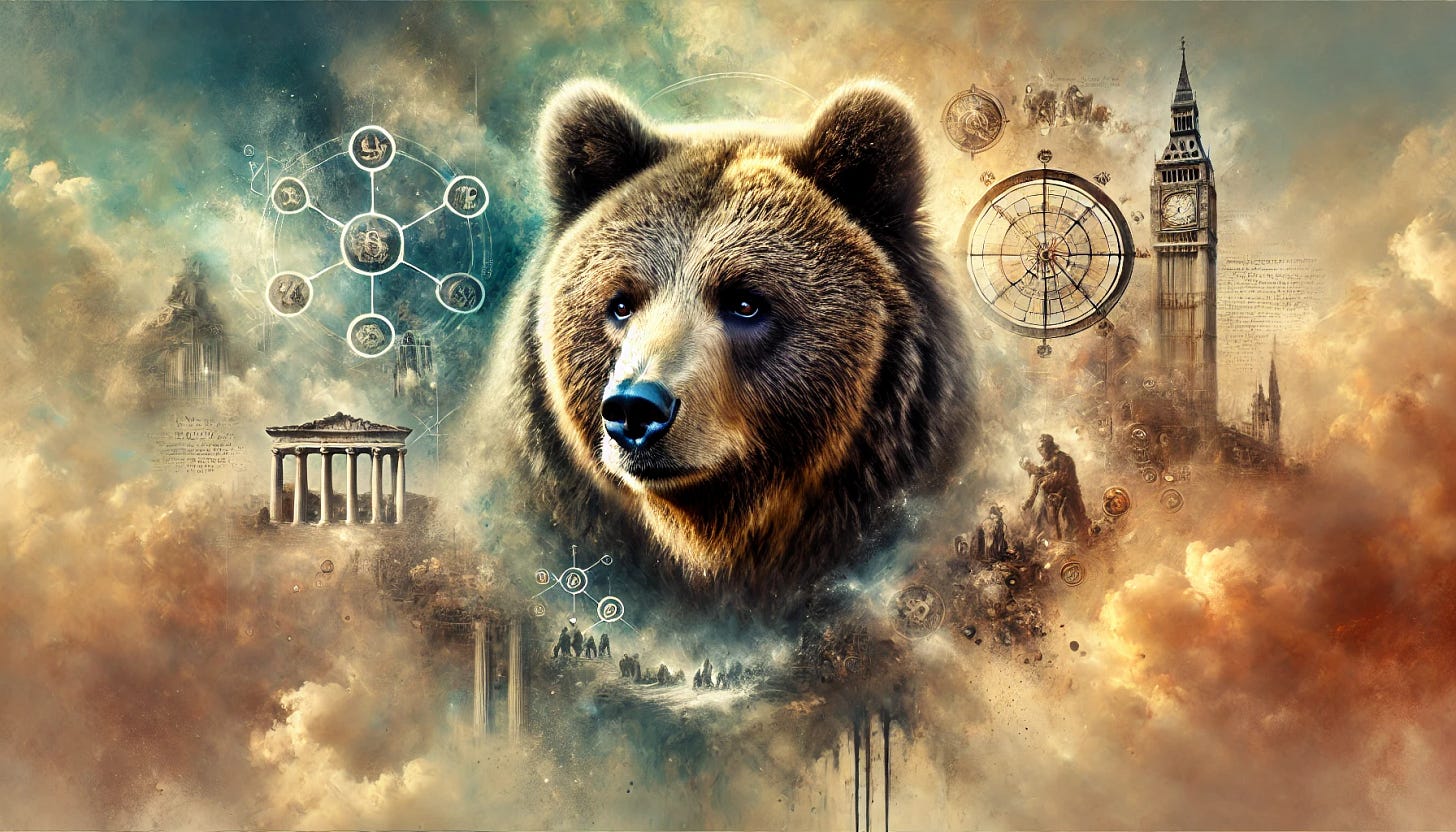A philosophical history, in the sense I mean the term, is the attempt to take history as a whole- what has happened to our species- and find within it a philosophical narrative.
What I say here I have said elsewhere- but I wanted to lay it out by itself, in simple terms, because I think it has some relevance to important conversations in transhumanism, effective altruism, and Marxism. It recalls both Singer’s and Marx’s philosophical history, and in an inverse way, Nick Land’s.
Morality as we understand it is to a degree itself an adaptation, and also the result of other adaptations: intelligence, theory of mind, emotional contagion, language, etc. Obviously it always exists within a culture, a history, and a set of experiences, but exists in a general form in everyone or near everyone.
Consider the category of spandrel. A spandrel is something that results from the process of evolution, but itself carries no evolutionary benefit, and may even carry a detriment. Nipples are sometimes an adaptation (when present in women) but sometimes a spandrel (when present in men). Similarly, morality is sometimes adaptive and sometimes a spandrel.
The functioning of morality as a spandrel goes back a long time. Margaret Mead suggested that the first sign of civilization was mended bones- as they suggested that people had begun to tend to those too sick to tend to themselves. This is perhaps a little too generous, as the sick would become useful again once healed- the cold benefit is clear. For me, civilization, and the spandrel of morality- call it altruism if you will- begins the first time people decide to take care of someone who could not care for themselves, and who would obviously never recover to repay the failure. The earliest civilization we know of then is Neanderthal, but I’d bet it goes back further than that.
The conflict that matters more than any other in history is the conflict between human morality and natural selection, analogous to the idea of a realm of freedom and a realm of necessity. Very often- most often- morality and selection do not disagree, or disagree only marginally- but sometimes they clash. The most important patterning of history from the point of view of human welfare and the final outcome of it all is the struggle between these principles.
Although it might seem improbable a priori, the altruism-spandrel is not clearly losing the fight, though it must seem so small against the world, so contingent. Jesus said it best I think: The Kingdom of Heaven is like a grain of mustard seed, which a man took, and sowed in his field; which indeed is smaller than all seeds but when it is grown, it is greater than the herbs and becomes a tree, so that the birds of the air come and lodge in its branches. Probably the reason the Spandrel is not losing the fight is that the spandrel as a cultural force coordinates individuals unselfishly across time and space in a way that evolutionary optimization- whether of organisms or of culturally selected units like states or firms- has trouble matching.
Now, we have the prospect of stopping natural selection forever and designing our own future. The spandrel has the possibility of devouring natural selection- the optimizing God that created it. Designing societies, redesigning ourselves biologically, augmenting ourselves, defeating death and illness, and creating a world in which our highest values- truth, beauty, and the good- the ones so often thwarted by natural selection and necessity, reign. Both technological, ethical, and political achievements and revolutions will be necessary for this, but if we succeed, the spandrel will emerge as the new governing principle of our bit of the universe.
Some people look at this and worry “Even if we created a post-evolutionary society, wouldn’t evolution eventually destroy it? Won’t, for example, more ruthless space-faring civilizations who disdain the spheres like morality and aesthetics and only seek to propagate themselves as cancer does crush us?” The answer is no, not necessarily. If we can take a slice of space for ourselves, it’s possible that we will be able to render ourselves too entrenched to be worth fighting through a first-mover advantage.
Other people look at this story and say “Why care about morality if it’s just some random spandrel?” This seems to me to be a mistake- we care about what we care about at the most basic level, and that’s all there is to say. Reasons have to level out somewhere, and there is nothing wrong with ending at basic ethical principles. I note that no one ever makes this critique of aesthetics, even though its origins are just as contingent and arbitrary. The history of why we crave these things is not relevant to the fact that we do crave them- and, and this is the triumph of the spandrel here- we do not infer what ought from what is, or what has been.
I am quite poor, spend many hours a week on this blog, and make it available for free. Your paid subscription and help getting the word out would be greatly appreciated. A big thanks to my paid subscribers, and those who share the blog around.





>Very often- most often- morality and selection do not disagree, or disagree only marginally
Do you mean in the ancestral environment, or even continuing into the future?
If you think of AI as our children, the thought of them replacing us stings less. Consider the way they're doing it: life is so engaging, meaningful, *fun* for the rich half of humanity already that our fertility rate has fallen below replacement...